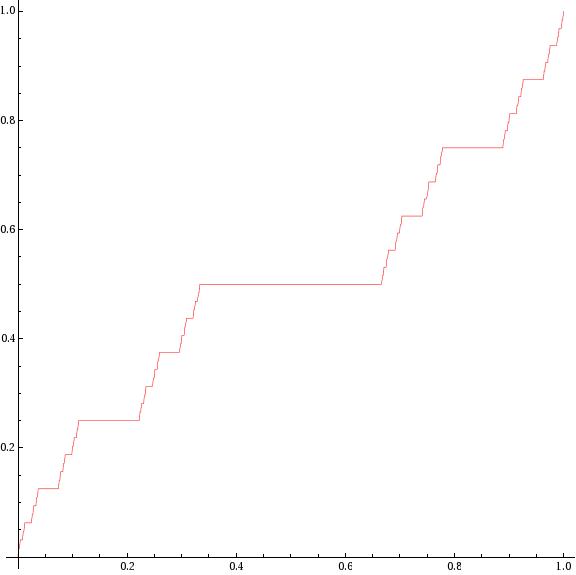

| Instructor | Dr. Mark Comerford |
| Office | Lippitt 102 F |
| Phone | 874 5984 |
| mcomerford@math.uri.edu | |
| Office Hours |
Monday 10am-12pm or by appointment |
| Text | H. L. Royden, P. M. Fitzpatrick Real Analysis (4th Ed.) ISBN 0-13-143747-X |
| Prerequisites | Mth 535, 435, 436 or equivalent |
Lectures and Homework Problems (Tentative)
| Section | Problems |
| 4.6 Uniform Integrability: The Vitali Convergence Theorem | |
| 5.1 Uniform Integrability and Tightness | |
| 5.2 Convergence in Measure | |
| 5.3 Characterizations of Riemann and Lebesgue Integrability | |
| 6.1 Continuity of Monotone Functions | |
| 6.2 Differentiability of Monotone Functions: Lebesgue's Theorem | |
| 6.3 Functions of Bounded Variation: Jordan's Theorem |
|
| 6.4 Absolutely Continuous Functions | |
| 6.5 The Fundamental Theorem of Calculus | |
| 6.6 Convex Functions | 17.1 Measures and Measurable Sets |
| 17.2 Signed Measures: the Hahn and Jordan Decomposition Theorems | |
| 17.3 The Carathéodory Measure Induced by an Outer Measure | |
| 18.1 Measurable Functions | 9, 5, 8 |
| 18.2 Integration of non-Negative Measurable Functions | |
| 18.3 Integration of General Measurable Functions | 5, 9 |
| 18.4 The Radon-Nikodym Theorem | II, III Problems |
| 19.1 The Completeness of Lp (X, μ) | 2, 27 (27 is extra credit) |
| 19.2 The Riesz Representation Theorem for the Dual of Lp (X, μ), 1 ≤ p < ∞ | 12 |
| 19.3 The Kantorovich Representation Theorem for the Dual of L∞ (X, μ) | 12 |
| 20.1 Product Measures: the Theorems of Fubini and Tonelli | 18 |
| 20.2 Lebesgue Measure on Rn |
Exams
| Midterm | 2-3:15pm Wednesday March 7 Lippitt 201 |
| Final | TBA Lippitt 201 |
Evaluation
| Homework | 40% |
| Midterm | 20% |
| Final | 40% |
Course Description
This course is an introduction to the wonderful world of measure and integration. You will learn how it is possible to give meaningful answers for the integrals of functions whose Riemann integrals do not exist. Key to this is the idea of a measure, which is a way of giving the size of sets of real numbers which are much more general than the simple intervals used in the Riemann integral. We will rigorously explore questions such as which functions can be integrated in this way, when and where can one differentiate `nice' functions such as monotone functions, when can one interchange the order of integration and when can one measure can be obtained by integrating a density against another measure.
In addition to covering the course material, there will be a very strong emphasis on mathematical rigor and mastering techniques of proof. This is reflected in the rather large percentage of the overall grade which is given over to homework which will be assigned weekly. Please note two things about the homework: firstly, I expect all homework to be submitted using LaTEX and secondly that I will not be taking resubmissions.
In addition to homework, there will be one midterm (provisional date Wednesday October 21) and a final. The material covered in the exams will be partly based on the homework, but there is also some expectation that there will be unseen problems. In addition, you may be asked to give proofs of theorems covered in class and you will be given in advance a list of those theorems which are examinable.
Goals and Objectives
The goals of the course are to have you develop the skills of working with real numbers, limits, continuity and differentiability.
At the conclusion of this semester you should be able to:
Special Accommodations
Students who need special accomodations and who have documentation from Disability Services should make arrangements with me as soon as possible. Students should conact Disability Services for Students, Office of Student Life, 330 Memorial Union, 874-2098.